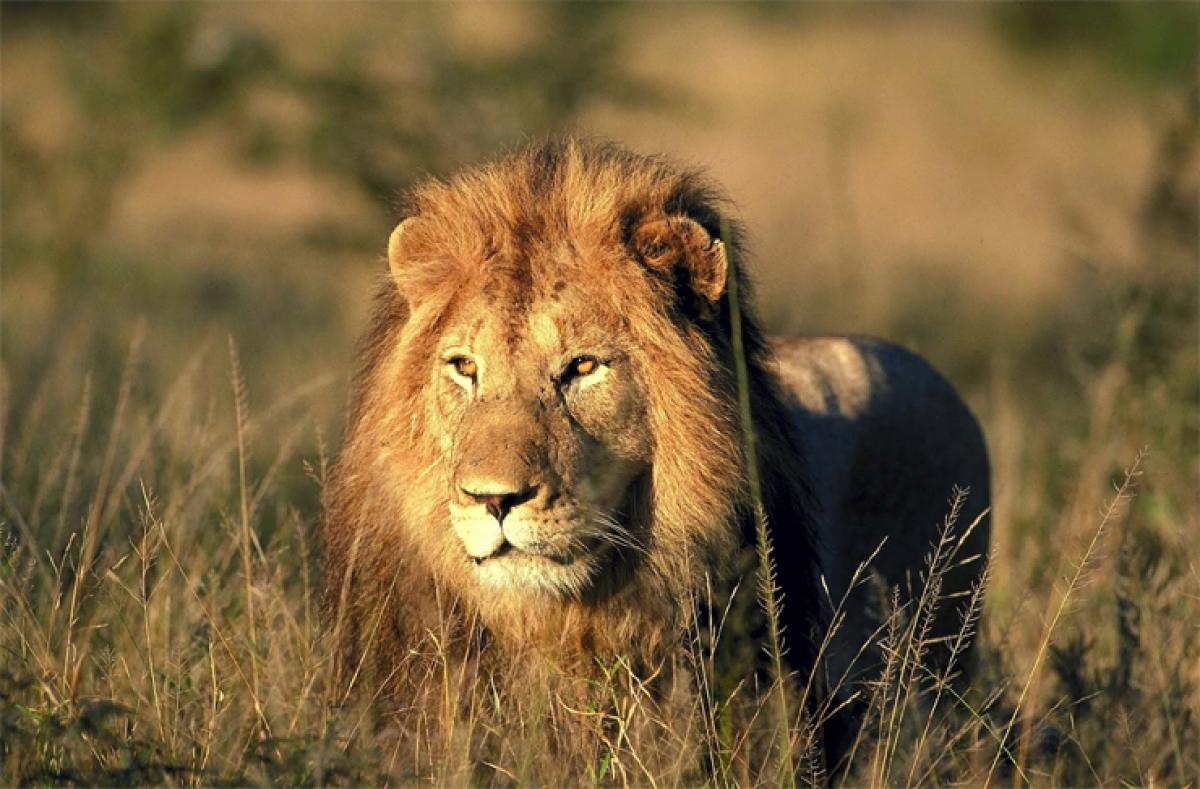Live
- Cinematica Expo 2024: Hyderabad Shines as a Hub for Cinema, Technology, and Digital Innovation
- Set up special teams for respiratory cases, hospitals told
- Hyderabad fastest growing city among 6 metros
- MyVoice: Views of our readers 20th November 2024
- Tamil Nadu, Manipur enter final rounds
- Anupama enters 2nd round; Sumeet-Sikki also win
- Stage set for Mahayuti-MVA 'Maha' yudh today
- India beat Japan 2-0, to face China in final
- Space X launches ISRO's communication satellite
- Sensex, Nifty rebound on value buying
Just In
Smart to hunt but weak to protect – HR message from scavenger lion

8 Oct 2015 3:55 PM IST

x
Highlights
Is lion a predator or scavenger? The simple answer would be lion is the top predator in the terrestrial ecosystem. But why the lion, ‘king of the jungle’ sometime exhibit scavenging behaviour and steal the kill of other animals like Cheetah, Hyena and Leopard? Biologist may answer that when lion become old and weak, when food is scarce and the season is extremely bad etc., lion may behave like a scavenger.
Is lion a predator or scavenger? The simple answer would be lion is the top predator in the terrestrial ecosystem. But why the lion, ‘king of the jungle’ sometime exhibit scavenging behaviour and steal the kill of other animals like Cheetah, Hyena and Leopard? Biologist may answer that when lion become old and weak, when food is scarce and the season is extremely bad etc., lion may behave like a scavenger.

But the message that is very clear from the scavenging behavour of the lion is that the strong predator also harbors some ‘weak’ behaviour or trait (if we were to consider stealing and scavenging the kill of other animals as weak behaviour).
The absolute reason for the scavenging behaviour of the lion is not the mere scarcity of food or old age but only the weakness of the other animals in protecting their hunt kindle the lion to be a scavenger.
When the lion see a smaller or weaker animal with a kill, naturally it pounces towards it and grabs the kill. If other animals were much stronger than the lion in number, it may not risk its life.
The corporate employees must draw their message clearly from the above behaviour of lion in the jungle. When a smaller predator knows to hunt a prey, it also must know how to protect it from poachers and scavengers. If it fails to do so, naturally its hard earnings will be snatched by others.
The bosses who behave like scavengers in the corporate world are not remote or rare. Many bosses do scavenge the credit of the hard/smart work of their subordinates. They try to show either it was done by them or it was done under their supervision and with their guidance.
Instead of blaming such bosses, the subordinates must develop ‘smartness’ beyond the paradigm of achieving. They should develop skills and smartness in protecting their achievements from getting scavenged or stolen. If the employees have not developed such an art, naturally their credits will be scavenged by their bosses.
Blaming the bosses will do little and hence one has to be smart. There is no written rule that lion has to hunt and eat its meal and should not scavenge.
Being a carnivore, lion has to hunt for its meal. If the meal were available without hunting, naturally it would prefer the same. The easy availability of the meal is ensured only by the smaller and weaker animals like cheetah, wild dog or leopard etc. When these animals know how to hunt also must know how to protect the hunt.
The message of nature is straight and clear. The employees who learned the management insight become successful and those fail to do so have to accept the due reward of their bosses. The purpose of the article is not to give a clean chit to the scavenging bosses in corporate, but giving an insight to the subordinates to be smart and tactful in corporate world.
It is not the ‘just’ achievement makes an achiever, but the one who know how to protect the achievement only become the real achiever at the end in this competitive world.
Dr S Ranganathan

Next Story
More Stories
ADVERTISEMENT
© 2024 Hyderabad Media House Limited/The Hans India. All rights reserved. Powered by hocalwire.com






